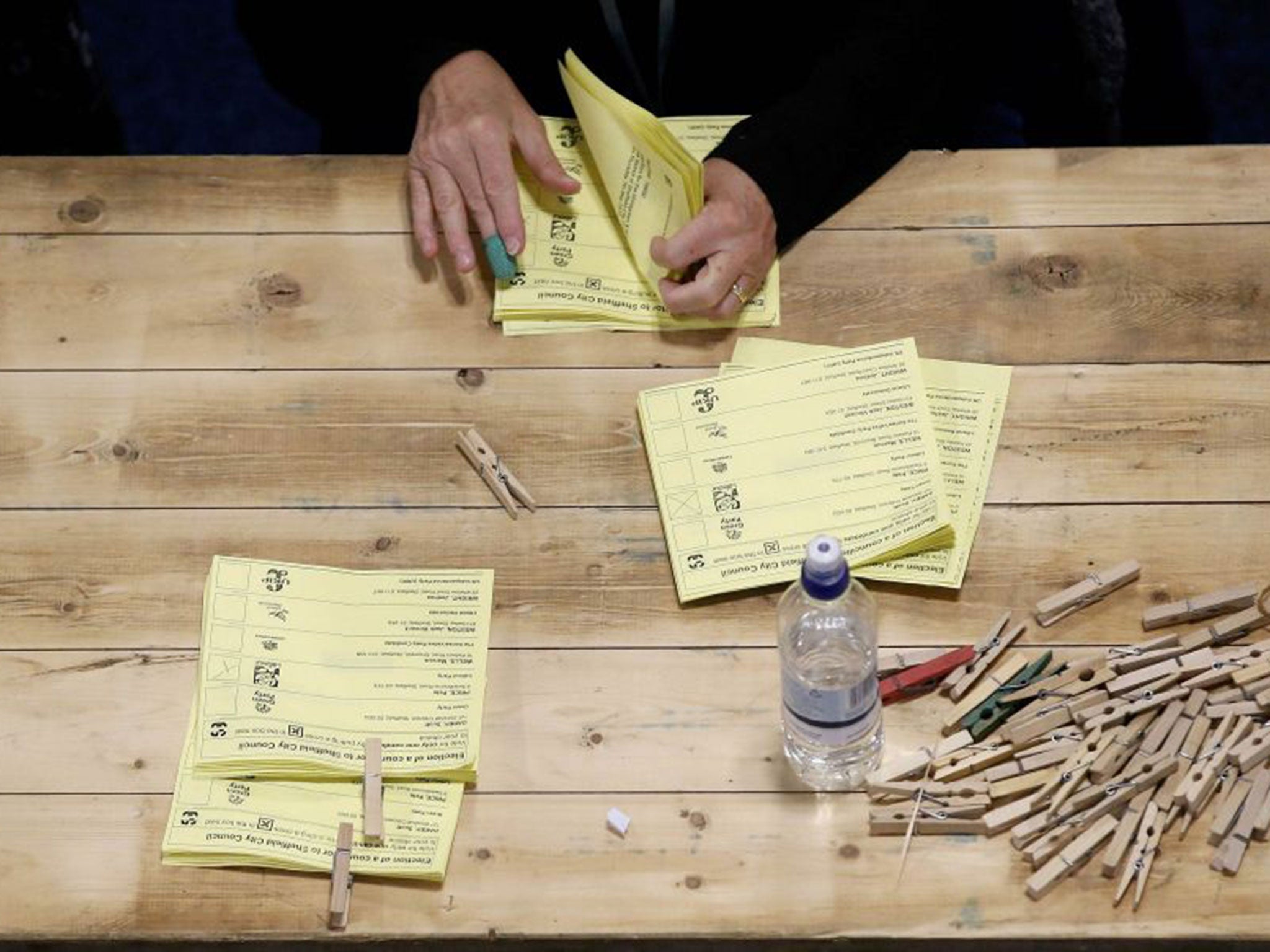Your support helps us to tell the story
From reproductive rights to climate change to Big Tech, The Independent is on the ground when the story is developing. Whether it's investigating the financials of Elon Musk's pro-Trump PAC or producing our latest documentary, 'The A Word', which shines a light on the American women fighting for reproductive rights, we know how important it is to parse out the facts from the messaging.
At such a critical moment in US history, we need reporters on the ground. Your donation allows us to keep sending journalists to speak to both sides of the story.
The Independent is trusted by Americans across the entire political spectrum. And unlike many other quality news outlets, we choose not to lock Americans out of our reporting and analysis with paywalls. We believe quality journalism should be available to everyone, paid for by those who can afford it.
Your support makes all the difference.The voting system used to elect MPs to Westminster is so dysfunctional it is hastening the break-up of the United Kingdom, according to a new report.
Researchers at the Electoral Reform Society found that the ‘winner takes all’ nature of First Past the Post was leading to entrenched regional divides by locking parties out of power in some areas of the country where they still had support.
The researchers note that for the first time in Britain’s history, the parties with the most seats in each of the UK’s four nations are different.
The Conservatives have the most seats in England, Labour has the most seats in Wales, the Scottish National Party dominates Scotland and the DUP has the most in Northern Ireland.
The researchers note, however, that the dominance of these parties in the four separate nations was not actually mirrored by the distribution of votes in them.
The Conservatives did not win a majority of votes in England despite taking nearly all the seats, and Labour was nearly left without representation in Scotland despite taking a large share of the vote.
“The electoral map of the UK suggests that we are a state of four separate and politically disparate nations, with each of our national parliamentary institutions now governed by different political parties,” the authors wrote.
“Yet the way UK citizens vote shows political preferences are far more diverse within nations and regions than the results suggest. FPTP is exaggerating the political differences of the different regions and nations of the UK, leaving many citizens unrepresented.
“Whatever the future of the Union, an electoral system that exacerbates divisions rather than reflects consensus and difference as it truly exists is unacceptable in a democracy; an electoral postcode lottery does not serve voters well.”
Katie Ghose, the society’s chief executive said: “This report shows definitively that our voting system is bust. May 7th was the most disproportionate election in British history – and it’s about time we had a fairer system for electing our MPs.
“First Past the Post is artificially dividing the UK – giving the SNP nearly all Scottish seats on half the vote, while excluding Labour from the South of England and over-representing them in Wales and under-representing the Conservatives in the North of England and Scotland.
“At the same time, cross-community parties in Northern Ireland got a tenth of the vote and no seats, yet the DUP received nearly half the seats on just a quarter of the vote. This situation is unsustainable if the Prime Minister truly wants a ‘one nation’ Britain. Our voting system is breaking up Britain.”
The report additionally found that the election result was the least proportional to votes cast in Britain's history.
Most European countries use a proportional systems to elect their parliaments, with the exception of France.
The Liberal Democrats, Green Party and Ukip want to reform the electoral system. Labour and the Conservatives, who benefit from the current arrangements, tend to be opposed. The SNP also supports reform despite benefiting from the current system.
The Electoral Reform Society was founded in 1884 and advocates changing Britain’s voting system to one which produces results which more accurately reflects the votes cast.

Join our commenting forum
Join thought-provoking conversations, follow other Independent readers and see their replies
Comments